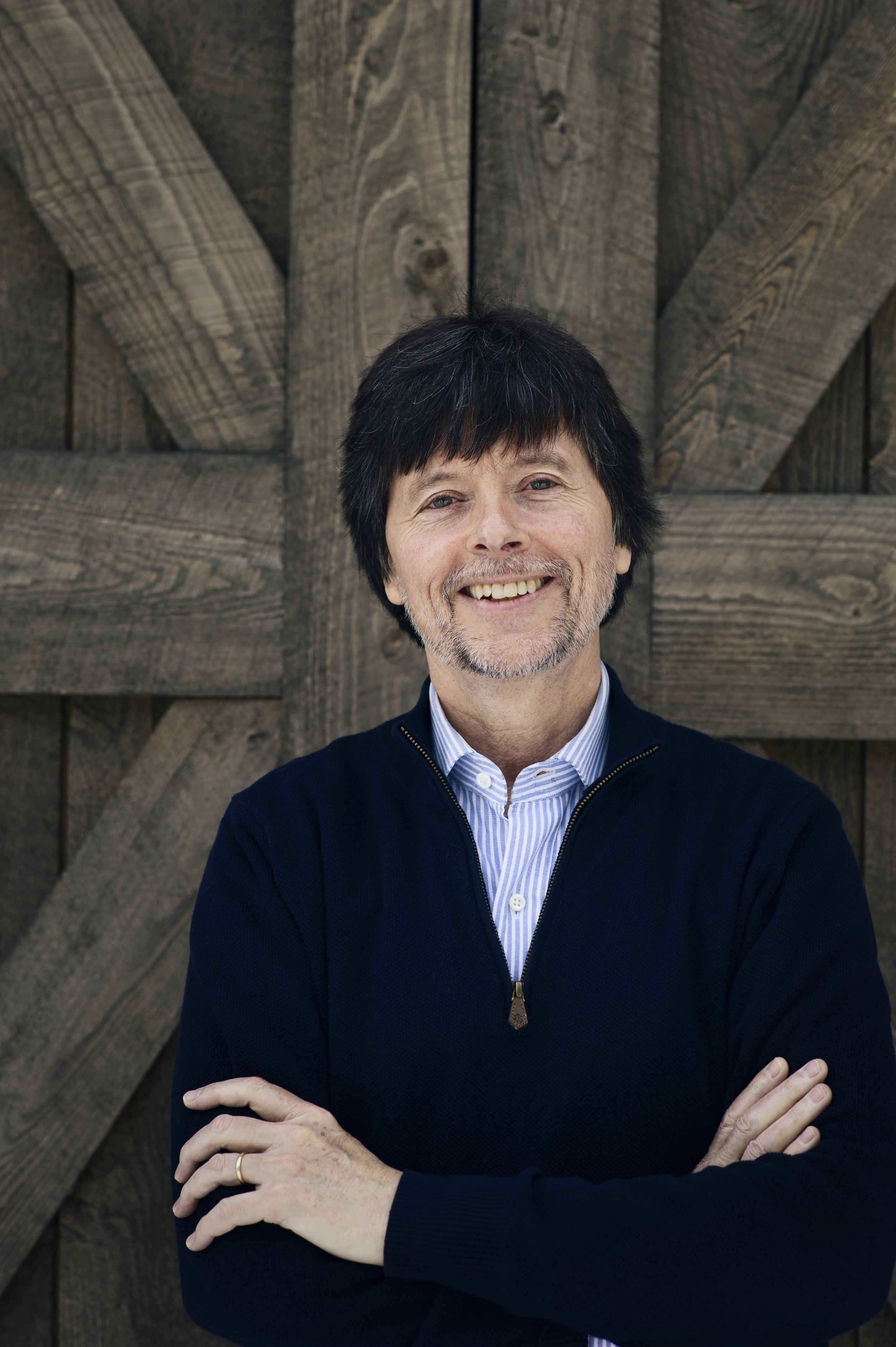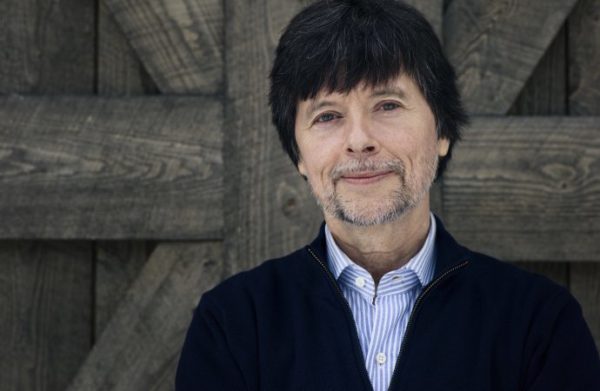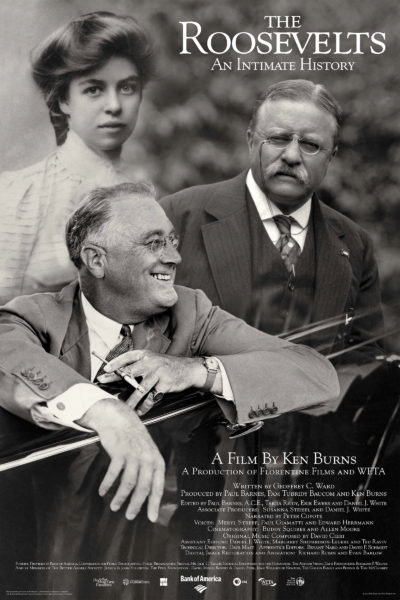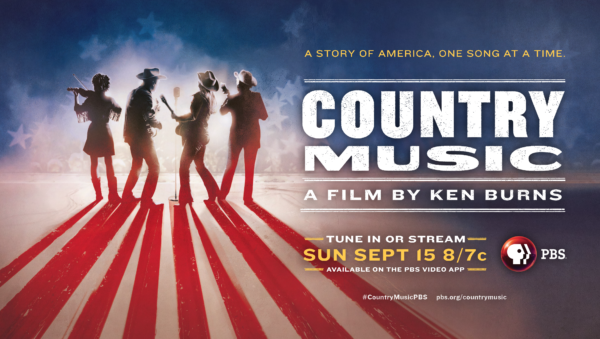
21 Aug Telluride Museum: Ken Burns, “The Roosevelts”- Ep.5,”The Rising Road”+ Talk, 8/25!
On Sunday, August 25, 6 p.m., the Telluride Historical Museum is pleased to announce the 6th annual “An Evening with Ken Burns.” This year’s event features a screening of Episode 5, “The Rising Road,” from his series titled “The Roosevelts: An Intimate History.” The evening also includes a post-screening audience Q&A session with Burns, as well as a book and DVD signing presented in conjunction with Between the Covers Bookstore. Burns will also be talking about his upcoming series, “Country Music. The 16-hour doc is scheduled to premiere on PBS on September 15.
Scroll down to listen to Ken Burns’ podcast for a preview of talk.
Tickets to the event are $25 for non-members, $20 for members, and $5 for students. Tickets can be purchased here or by calling the Museum at 970-728-3344. All tickets will be distributed at the door of The Palm Theatre.
“We continue to be appreciative of Ken Burns’ gracious commitment to the Telluride community and to the Museum specifically,” executive director Kiernan Lannon said. “We are once again providing the community with the Telluride region to see one of America’s foremost documentarians and historians present his work and engage with this great community. We’re looking forward to another thought-provoking evening.”

A triad is a group of three, especially of three closely related persons or things.
Theodore, Franklin and Eleanor Roosevelt are three members of one of the most prominent and influential families in American history.
Songwriter Harlan Howard reportedly defined country music as “three chords and the truth.”
Filmmaker Ken Burns has been making documentaries about what makes America great still (or not in the case of Vietnam and the Dust Bowl) for well over three decades. (OK, it’s over 40 years now.)
Those seemingly disparate 3s roll up into one singular sensation when the Telluride Historical Museum hosts the 6th annual “An Evening with Ken Burns.” The self-described “emotional archeologist” returns to town to screen a segment from his celebrated PBS series, “The Roosevelts: An Intimate History” and talk about his latest project, “Country Music,” a 16-hour documentary chronicling the history of the genre.
Burns wears the role of social commentator like a second skin. For him, who returns to our box canyon annually for the Telluride Film Festival – he is on the board of advisors – the summer evening at The Palm complex is a chance to share some of his favorite themes in depth: American identity and individuality, race, and democracy writ large. Over the years, Burns has filtered those notions through the lens of baseball, National Parks, The Civil War, WWII, the uniquely American phenomenon known as jazz and Vietnam to name a few of the subjects of his eye-opening docs.
Over the years, Burns has earned a reputation for an infectious gravitas, for delivering steak, rather than just the sizzle. The always highly anticipated Museum happening featuring the award-winning filmmaker – and one of our country’s most intelligent and celebrated socio-cultural commentators – takes place this year on Sunday, August 25, starting at 6 p.m.
Connecting the dots between “The Roosevelts” and country music would appear to be a Sisyphean task. The solution comes down to what the director has repeatedly said motivates him: “A good story about American history firing on all cylinders,” stories like these that answer the questions about who we are, why we are the way we are, and why we are not the way we are not.
“The Roosevelts: Episode 5, “The Rising Road”

In September 2014 PBS broadcast “The Roosevelts: An Intimate History,” a seven-part, 14-hour film that tells the stories of Theodore, Franklin and Eleanor Roosevelt. The series marks the first time their individual legacies have been woven into a single narrative.
The segment Burns chose from “The Roosevelts” for his annual screening, “The Rising Road,” focuses on the six-year period from 1933 to 1939, when Franklin Roosevelt confronted head-on the first of two great crises that would define his presidency and forever change the nature and expectations of the executive branch—the Great Depression and the beginnings of World War II in Europe and the rise of Adolph Hitler.
During that time, Eleanor Roosevelt moved from a reluctant First Lady to a willing, active participant in the events unfolding around her as she advocated for the people and causes near to her heart.
By the end of the decade, FDR faced a country reluctant to ready itself for entry into a war that threatened to engulf the world while contemplating something no president had ever considered before—a third consecutive term as President of the United States.
“…as with other Burns documentaries, there’s what the film is about and then there’s what it’s really about. Burns’s trick is to use comfortable, pledge-drive-friendly subjects to talk about issues that otherwise make people uncomfortable and polarized. So The Dust Bowl echoed the arguments over climate change. The National Parks, beyond the pretty pictures, was about whether there were certain things that government could do collectively–here, preserve unspoiled nature–that we cannot do individually or privately. Baseball and Jazz were, considerably, about race.
“The Roosevelts, on one hand, is the story of, well, the Roosevelts: the personal and family influences that shaped three people who shaped America, whose dynastic saga author Jon Meacham compares in the documentary to something from Shakespeare. But The Roosevelts is also the story of the 20th century.
“That may not seem so controversial–until you realize how many of today’s political arguments are about, essentially, whether the 20th century was a good idea.
“Limiting the power of corporations, expanding the power of government, creating a social safety net, putting women on more equal footing with men, ending American isolationism and becoming vigorously involved overseas–these are political hot buttons today, and they came to us largely through Roosevelts…,” observed Time magazine.
“Country Music”

At the turn of the 20th century, the word “jass” was slang for making love. The term evolved to describe the kind of music played in brothels to accompany such activities.
Jazz is one of the indigenous American musical forms to have exerted an influence on musical development throughout the Western world. It was created by obscure black musicians in the late-19th century through a synthesis of Western harmonic language and forms with the rhythms and melodic inflections of Africa. Jazz is characterized by improvisation.
The eight-part, 16-hour exploration into “Country Music,” in the works for eight years from research to development, is the second Ken Burns project to focus on a uniquely American musical genre following 2001’s “Jazz.”
“It does not have the sophistication and elegance of jazz, but what it has is essential human emotions and stories told, basically, that everybody experiences. When someone says, ‘I’m not a fan of country music,’ we just say, ‘OK, just watch’,” Burns told the Tennessean.
Online sources say the origins of country music can be found in recordings Southern Appalachian fiddle players made back in the 1910s. It was not until the early ‘20s, however, that country music as a viable recorded genre took hold. The first commercial country record was made by Eck Robertson in 1922 on the Victor Records label. Vernon Dalhart had the first national country hit in 1924 with “Wreck of the Old ’97.” But most historians point to 1927, the year Victor Records signed Jimmie Rodgers and The Carter Family as the true moment country music was born.
The documentary, written by long-time Burns collaborator Dayton Duncan, who also wrote the illustrated companion book (coming from Alfred A. Knopf on September 10), chronicles those early days of country music, from southern Appalachia’s songs of struggle, heartbreak and faith to the rollicking Western swing of Texas, California’s honky-tonks and Nashville’s “Grand Ole Opry.” The film follows the evolution of country music over the course of the 20th-century as ”hillbilly music” evolved to become “America’s music.”
“Country Music” explores crucial questions “What is country music?” and “Where did it come from?” while focusing on the biographies of the fascinating trailblazers who created and shaped the genre, from the Carter Family, Jimmie Rodgers, Bill Monroe, and Bob Wills to Hank Williams, Patsy Cline, Johnny Cash, Merle Haggard, Loretta Lynn, Charley Pride, Willie Nelson, Dolly Parton, Emmylou Harris, Garth Brooks and many more — as well as the times in which they lived.
Much like the music itself, the doc tells unforgettable stories of hardships and joys shared by everyday people. And therein lies another link between this doc and other Burns histories.
“At the heart of every great country music song is a story,” said Ken Burns. “As the songwriter Harlan Howard said, ‘It’s three chords and the truth.’ The common experiences and human emotions speak to each of us about love and loss, about hard times and the chance of redemption. As an art form, country music is also forever revisiting its history, sharing and updating old classics and celebrating its roots, which are, in many ways, foundational to our country itself.”
“We discovered that country music isn’t– and never was – one type of music; it actually is many styles,” said Dayton Duncan. “It sprang from diverse roots, and it sprouted many branches. What unites them all is the way the music connects personal stories and elemental experiences with universal themes that every person can relate to. And as it evolved, from the bottom up, it created a special bond between the artists and fans that is unique among all other musical genres.”
“As with so many of their films, Ken and Dayton guide us on a journey through history that educates and entertains, providing an intimate look into the creative lives of those women and men who came together to develop an authentic American art form,” said Perry Simon, PBS Chief Programming Executive and General Manager, General Audience Programming.
“Country Music” digs deep to uncover the roots of the music, including ballads, minstrel music, hymns and the blues, and its early years in the 1920s, when it was called “hillbilly music,” and was recorded for the first time and played across the airwaves on radio station barn dances. It explores how Hollywood B movies instituted the fad of singing cowboys like Gene Autry and shows how the rise of juke joints after World War II changed the musical style by bringing electric and pedal steel guitars to the forefront.
The film witnesses the rise of bluegrass music with Bill Monroe and reveals how one of country music’s offspring — rockabilly — evolved into rock and roll in Memphis. Throughout, the documentary focuses on the constant tug of war between the desire to make country music as mainstream as possible and the periodic reflexes to bring it back to its roots.
As Burns and Duncan weave together the musical stories, they connect the history of country music to the larger story of America, looking at how artists and songwriting reflected periods of depression, war and cultural upheaval, and how radio and later television impacted the art form. The series also tells the story of how Nashville came to be not only the epicenter of the country music industry, but Music City USA.
More about Ken Burns:
Ken Burns has been making documentary films for over forty years. Since the Academy Award nominated Brooklyn Bridge in 1981, Ken has gone on to direct and produce some of the most acclaimed historical documentaries ever made, including The Civil War; Baseball; Jazz; The Statue of Liberty; Huey Long; Lewis & Clark: The Journey of the Corps of Discovery; Frank Lloyd Wright; Mark Twain; Unforgivable Blackness: The Rise and Fall of Jack Johnson; The War; The National Parks: America’s Best Idea; The Roosevelts: An Intimate History; Jackie Robinson; Defying the Nazis: The Sharps’ War; The Vietnam War, and, most recently, The Mayo Clinic: Faith – Hope – Science.
A December 2002 poll conducted by Real Screen Magazine listed The Civil War as second only to Robert Flaherty’s Nanook of the North as the “most influential documentary of all time,” and named Ken Burns and Robert Flaherty as the “most influential documentary makers” of all time. In March 2009, David Zurawik of The Baltimore Sun said, “… Burns is not only the greatest documentarian of the day, but also the most influential filmmaker period. That includes feature filmmakers like George Lucas and Steven Spielberg. I say that because Burns not only turned millions of persons onto history with his films, he showed us a new way of looking at our collective past and ourselves.” The late historian Stephen Ambrose said of his films, “More Americans get their history from Ken Burns than any other source.” And Wynton Marsalis has called Ken “a master of timing, and of knowing the sweet spot of a story, of how to ask questions to get to the basic human feeling and to draw out the true spirit of a given subject.”
Future film projects include Ernest Hemingway, Muhammad Ali, The Holocaust & the United States, Benjamin Franklin, Lyndon B. Johnson, The American Buffalo, Leonardo da Vinci, the American Revolution, the history of Crime and Punishment in America, the history of Reconstruction, and Winston Churchill, among others.
Burn’s films have been honored with dozens of major awards, including sixteen Emmy Awards, two Grammy Awards and two Oscar nominations; and in September of 2008, at the News & Documentary Emmy Awards, Ken was honored by the Academy of Television Arts & Sciences with a Lifetime Achievement Award.
About WETA
WETA Washington, DC, is one of the largest producing stations of new content for public television in the United States. WETA productions and co-productions include PBS NewsHour, Washington Week, The Kennedy Center Mark Twain Prize, The Library of Congress Gershwin Prize for Popular Song, Latino Americans and The Italian Americans; documentaries by filmmaker Ken Burns, including The Civil War, Baseball, The National Parks: America’s Best Idea, The Roosevelts: An Intimate History and The Vietnam War; and productions by Harvard scholar Henry Louis Gates, Jr., including Finding Your Roots with Henry Louis Gates, Jr. (seasons three and four), Black America Since MLK: And Still I Rise and Africa’s Great Civilizations. WETA presentations include Martha Stewart’s Cooking School, Pati’s Mexican Table, Sara’s Weeknight Meals, Globe Trekker and Daniel Tiger’s Neighborhood. Sharon Percy Rockefeller is president and CEO. The WETA studios and administrative offices are located in Arlington, Virginia. More information on WETA and its programs and services is available at www.weta.org. On social media, visit www.facebook.com/wetatvfm on Facebook or follow @WETAtvfm on Twitter.
About PBS
PBS, with nearly 350 member stations, offers all Americans the opportunity to explore new ideas and new worlds through television and digital content. Each month, PBS reaches nearly 100 million people through television and nearly 28 million people online, inviting them to experience the worlds of science, history, nature and public affairs; to hear diverse viewpoints; and to take front row seats to world-class drama and performances. PBS’ broad array of programs has been consistently honored by the industry’s most coveted award competitions. Teachers of children from pre-K through 12th grade turn to PBS for digital content and services that help bring classroom lessons to life. Decades of research confirms that PBS’ premier children’s media service, PBS KIDS, helps children build critical literacy, math and social-emotional skills, enabling them to find success in school and life. Delivered through member stations, PBS KIDS offers high-quality educational content on TV – including a new 24/7 channel, online at pbskids.org, via an array of mobile apps and in communities across America. More information about PBS is available at www.pbs.org, one of the leading dot-org websites on the internet, or by following PBS on Twitter, Facebook or through our apps for mobile and connected devices. Specific program information and updates for press are available at pbs.org/pressroom or by following PBS Pressroom on Twitter.


Sorry, the comment form is closed at this time.